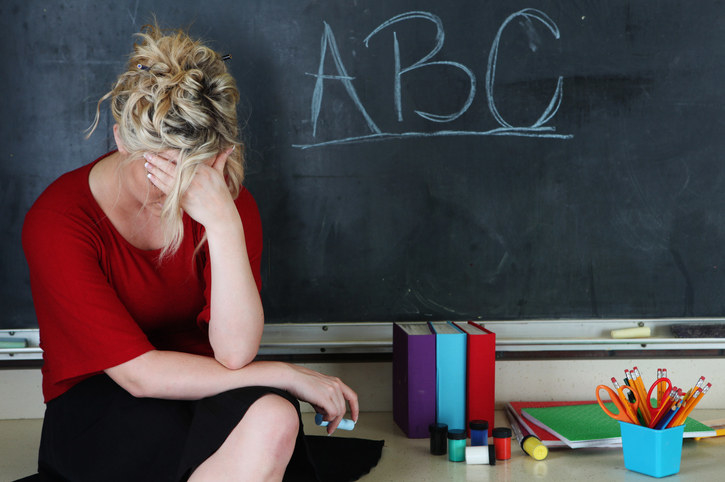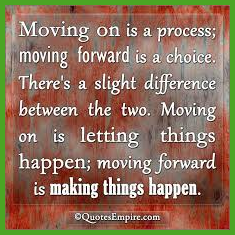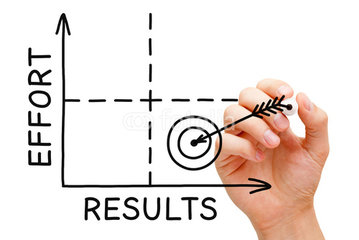After 31 years of teaching, I am coming to the sad conclusion that public education in the USA is almost to the point that it cannot be saved.
Federal agents, state agents and district agents have played all they can play on the one string they can easily control in the orchestra that is public education – the teachers. What is coming to fruition is the result of that relentless twanging on that one string, compounded by the problematic, stifling effects of teaching in a Pandemic, added to the ineffectual and undermining policies that have been enacted over the past several decades, to wit: teachers are leaving the profession in unprecedented numbers, and the supply chain of new teachers is not keeping up with the demand. I myself, cannot recommend teaching in the USA, and instead, suggest that those who desire to teach consider international teaching instead of domestic USA public schools.
Why do I believe public education is almost unsalvageable? The federal policies that began with No Child Left Behind and have continued with the various equally flawed mandates since then, have set up a current system of comparison that allows no school to have their “numbers” drop. This race to obtain the necessary “numbers” to avoid having a school taken over by the state (mandated by the feds) has resulted in chicanery of the worst sort that would have an accountant brought up on criminal charges for cooking the books.
Shifting the responsibility for learning back to the students (because the teachers actually are teaching their hearts out under a ridiculous progression of “effective practices” professional development courses) will mean actually holding students accountable for attendance and achievement. Implementing this will mean (since it hasn’t been done for YEARS) a resultant drop in inflated grades and graduation rates (mostly worthless pieces of paper that purport to be diplomas certifying acceptable levels of achievement) that will result in schools being slated for takeover, meaning that entire school faculties will be terminated. As if they could actually replace those professionals in the current labor market, which is highly unlikely, given that more schools than not are currently understaffed because of the shortage of qualified professionals.
Why will “numbers” drop if schools actually return accountability to the learners? Because students have been catered to in a decades-long atmosphere in public schools of complete absence of responsibility, contributing to the “entitlement” generation employers are discovering as schools churn out “graduates” with zero work ethic and very questionable knowledge. One public school system, for example (by no means unique) has no grade reporting through the entire elementary school experience (PreK through grade 5 – that’s 7 years).
This is then followed by “grades” reported in grade levels 6-8, but no zeros are allowed to mar students’ academic averages. This means points are required to be entered from teachers for zero effort – AND students are passed along to the next grade level regardless of grades or achievement in their classes. So, not only is zero effort rewarded, it isn’t necessary to actually attend to the lesson content that IS BEING PRESENTED by the teaching staff. It absolutely does not matter what a student learns or does not learn during those three years of middle school, because they are automatically going to be socially promoted. Yes, the school does have attendance requirements (by state law) but there is NEVER a case brought legally for truancy, and students who exceed the maximum absences allowed are routinely exempted from any consequences if they merely request an exemption. So, neither learning OR attendance matters.
This is the situation now for the first 10 years of a student’s academic experience. By now, the student is 14-15 years old, and they’ve had a decade of complete and total academic irresponsibility. They are reading and performing academically two and three years (or more) behind where they should be (and those expectations are being lowered to match).
At this point, students enter high school where there are requirements for Carnegie Units, and now, for the first time in nearly a decade, they have to actually pass a class. So, seeing as this isn’t happening for up to half of them, the school now gets into creative accounting to keep their “numbers” up. See, if they suddenly began failing students whose lack of knowledge/achievement deserve to fail, their enrollment numbers will rise as precipitously as their graduation rates will fall in order for those failing students to retake those failed courses next year. This means schools will have to hire additional teachers to handle the load (if they can be found), and/or class sizes will rise. It also means some schools literally will not have space to accommodate those students, meaning portable units, or floating teachers who are teaching classes in rooms when other teachers have planning. All of this results in pressure from administration on teachers to pass students who have not passed, by replacing grades for work not done, putting in points for learning tasks not attempted, and finagling any other way that can be finagled to shuffle kids on though who haven’t learned or performed to minimum standards.
And, for some school systems, what will trump the educational, staff, and space reasons for speciously passing along students who have not earned their diplomas, it is a fact that increasing enrollments from failing students who might have been held accountable for the first time in their lives means that rising school enrollment will result in the school will be placed in a higher sports bracket. And this is without a potential rise in eligible athletes since the enrollment rise is from failing students who aren’t eligible to be athletes and they will then be forced to compete in football (and other sports, but let’s be realistic, only football counts) against larger schools. OMG.
I know of one school near the top of one sports classification bracket that routinely won the state football championship for years by finagling their attendance numbers, striving to avoid being reassigned to the next larger bracket where they then would be competing against larger schools. They shuffled off low-achieving students (except for those who were athletes, of course) to an alternative school in the county to lower the enrollment at the primary high school in order to stay within their desired sports bracket numbers. Not kidding – talk about creative accounting.
For those schools that actually aren’t a sports franchise that does academics as a side hustle, they are currently forced to pander to students who have a history of doing very little – and who have no desire, like most other habitually lazy people, of actually expending any effort to achieve their education. If schools return to traditional education – since the modern “effective practices” research quite obviously has not resulted in a better-educated graduate, there will be a period of time when students who are discovering the reality of failure drops the school’s “numbers.” In this day and age, that means the school will be taken over, by the evidence of their falling “numbers,” because numbers don’t lie, do they? Of course they do. Thus, administrators actually cannot effect meaningful change, and must continue to pander and pad their “numbers.”
Employers can already tell it. Our society can already tell it. And it isn’t going to get better, because there aren’t administrators who are willing to make the necessary changes because of the consequences to their careers. Same thing for the teachers who are forced by administrative orders to award points to students who’ve done nothing in class – they also need a job, and are unwilling to be the first one to stand up and say, “I’m not doing this crap, because it is crap.” They have income and a pension riding on that crappy job, and they aren’t willing to rock the boat, even though they know full well what is happening. It is a self-perpetuating disaster, and it’s been happening, is happening, and will continue to happen.
A school that has the sort of teachers/administrators with the guts to call a spade a spade are so rare, Hollywood makes movies about them.





